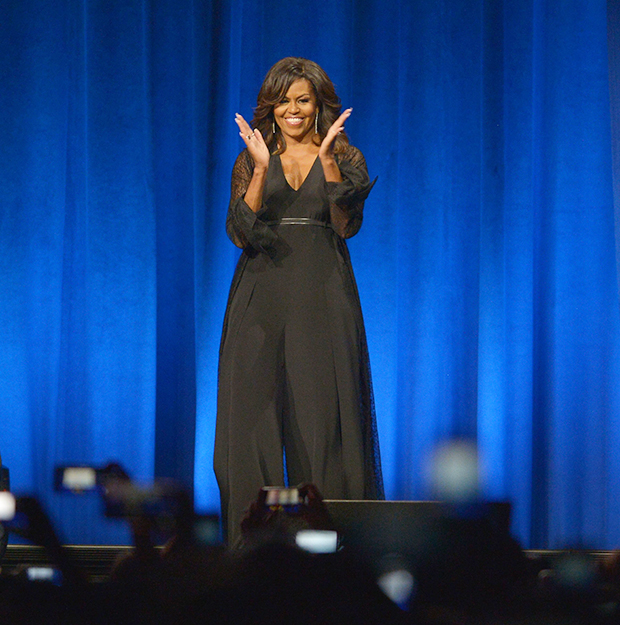After the House of Representatives passed a new voting rights act, Michelle Obama urged the Senate to avoid ‘partisan and patriotic actions’ and ensure that ALL Americans get a chance to make their ‘voices heard.’
Former First Lady Michelle Obama had both praise and a warning for Senate Republicans on Wednesday night (March 4.) The House of Representatives passed H.R. 1, the For the People Act, without the support of a single Republican. Ms. Obama, 57, who had become a national voting rights activist since founding her When We All Vote organization in 2018, praised the Democrats for championing the reforms before turning her eyes to the 50 Republicans in the divided Senate. “From the very beginning, When We All Vote has been focused on making it easier for everyone — especially young people and people of color — to vote in every election at every level,” she said in a statement.”
“I’m so proud that we saw a record turnout in the 2020 election. I’m proud of all those who voted and volunteered to make sure that, even in the middle of a pandemic, Americans everywhere could exercise their unalienable right to vote. But while we celebrate these historic gains, unfortunately, too many leaders are working to reverse that progress and make it harder for people with every right to vote to cast a ballot. Our democracy remains under attack by the partisan and unpatriotic actions of those at the state level who are doing everything they can to curtail access to the ballot box.”
“Make no mistake — the idea that we cannot both hold secure elections and ensure that every eligible voter can make their voices heard is a false choice,” she continued. “It’s based on lies, and it flies in the face of our history. It is sad. It is infuriating. And it is a genuine threat to our future that must be taken seriously. That is why I’m thrilled to see the House of Representatives pass the For The People Act. This bill will make it easier for ordinary Americans to register and cast a ballot.”
H.R. 1, aka The For The People Act, creates a new national automatic voter registration, ensuring that more people will be signed up to vote (per Vox). It also requires every state to put online options for voter registration, requires at least 15 consecutive days of early voting for federal elections, prohibits states from restricting a person’s ability to vote by mail, prohibits voter roll purging and bans the use of non-forwardable mail being used as a method to remove a voter from the rolls. It also establishes independent redistricting commissions in states as a way to end partisan gerrymandering in federal elections and restores voting rights to convicted felons who have completed their sentences.
The act also “requires the president and vice president to disclose 10 years of his or her tax returns,” according to Vox, a clear shot at the issue surrounding the twice-impeached, one-term former president Donald Trump. It also stops Congress members from using taxpayer money to settle sexual harassment discrimination claims, gives the Office of Government Ethics more oversight and enforcement powers, and creates a new ethics code for the U.S. Supreme Court.
To pass the Senate, the Democrats need to convince 10 Republicans to join them and vote for the bill. The GOP has already shown its unwillingness to support the bill. Some Republican members have attacked parts of H.R. 1 that focus on campaign finance reform, including the “DISCLOSE ACT,” which would require super PACs and “dark money” political organizations to make their donors public, according to the Associated Press. It would also “slow the flow of foreign money into the elections by targeting shell companies,” prohibit the coordination between candidates and super PACs and require Facebook and Twitter to disclose the source of money for political ads.
The 2020 election saw the highest U.S. voter turnout since 1900, per the Washington Times. Despite multiple fraudulent claims of voter fraud by Donald Trump, there was no evidence of election insecurity. That hasn’t stopped some legislators from enacting laws that some see as a way to make it hard for people, those who normally vote Democrat, to vote.
The Democrats see this bill as a vital response to nation-wide attempts to prevent people from voting. As of February 19, 2021,” according to the nonpartisan Brennan Center, ”state lawmakers have carried over, prefiled, or introduced 253 bills with provisions that restrict voting access in 43 states. There have also been “704 bills with provisions that expand voting access in a different set of 43 states.”
Source: Read Full Article

